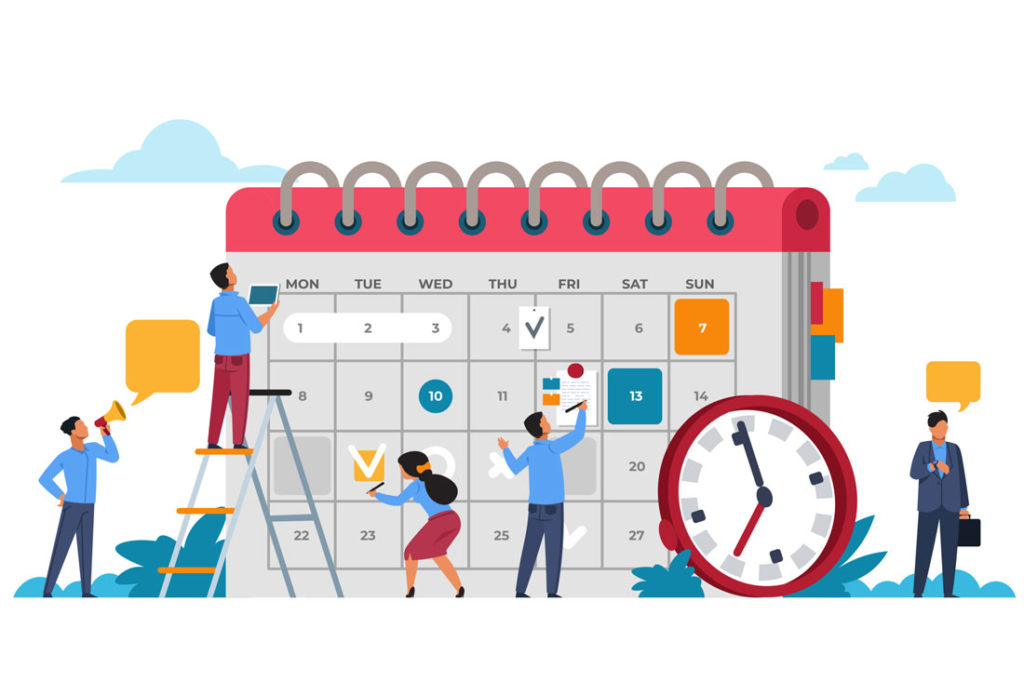At our first meeting, my executive coaching clients typically start the first conversation by sharing their top priority and what they want to improve. I hear them describe the desires to communicate better, manage frustration with others and be a better leader. But a bigger issue often lurks below the surface.
As we talk about their days and their lives, I hear accounts like:
“I often work well into the evening because there is so much to do.”
“My days are packed, and usually I’m scheduled in meetings from the time I get to the office to when I leave.”
“I end up being pretty exhausted most of the time.”
Days like these can be symptoms of bigger problems:
• Your day is no longer yours. Your working hours are available to others for scheduling and using your time as needed.
• You are losing perspective because you lack the pause or distance to view situations differently after further thought.
• Your pace and lack of boundaries are affecting your outlook, patience and ability to manage stress and frustration.
• Your ability to accomplish bigger priorities is compromised because not only is there no time to work anything but the fire drills, but you also have no time to think.
• You aren’t realizing your goals—your real reasons for working—because there is no room for it in your schedule.
Take your day, your week and your life back with these seven tips:
1. Don’t treat your calendar like a community feast. Your most precious asset is your time. Don’t allow others to control it by allowing open scheduling, letting them determine that you need to be at meetings “to stay in the loop” or take your time without you knowing if it’s a true priority. Ask more questions like, Do I need to be there? What can we do by email? Can we wait on this until next week? Or let me have Adam give you a call. Fiercely protect your time (and calendar), and use it wisely.
2. Create bumpers on your workday. If you are an entrepreneur or in a high-volume job, the work will never get done. It’s just built that way. Decide when you’ll start and end your workday—and respect it by marking your calendar or setting an alarm on your phone. One of the women I coached said that as soon as her feet hit the floor in the morning, she grabbed her phone, some coffee and went straight for the computer. And if you work from home, this is too easy to do.
3. Take more recess. This seems counterintuitive, but breaks recharge our brains and make us more productive. Also, if your job requires sitting, get up every hour and move around—away from the computer. And do something different and interesting on the weekend to get out of your routine and get a new outlook.
4. Plan for one hour a week (at least) and act on it. Pause and think what matters most this week and today. Is my time lined up to make that happen? Then start determining what can wait, what can someone else do, how to replace a meeting with sharing information through email and what can be reduced from a one-hour discussion to a phone call. Be deliberate about your week.
5. Build in more prep time. Many of my coaching clients describe walking into demanding meetings—that are scheduled right after something else—that don’t go as planned. If you have an event or meeting that might be stressful for you, build in time beforehand to pause, prepare and really feel that you are ready. Your schedule doesn’t have to be back-to-back.
6. Make an accomplishments list next to your to-do list. We all have lots of surprises that appear each day, so you can’t plan everything. An unfinished to-do list can make you feel that you came up short and that you need to work longer to make some progress. But this is a great way to recognize that you have accomplished a lot and to give yourself permission to end your day.
7. Be active often. We all know this, but I have seen the amazing impact it has on stress, emotional outlook and effectiveness. All research confirms it’s true. This is not an extracurricular but an essential for making us feel better and be better. Try yoga or mediation.
Time and how we spend it is the greatest currency we have to a sense of accomplishment, peace of mind, purpose and success. More hours doesn’t equate to being better. Treat the hours in your day with the utmost respect, and remember that sometimes doing less gets you more.
Take your time back. Make it yours. It is the best favor you can do for yourself today.





